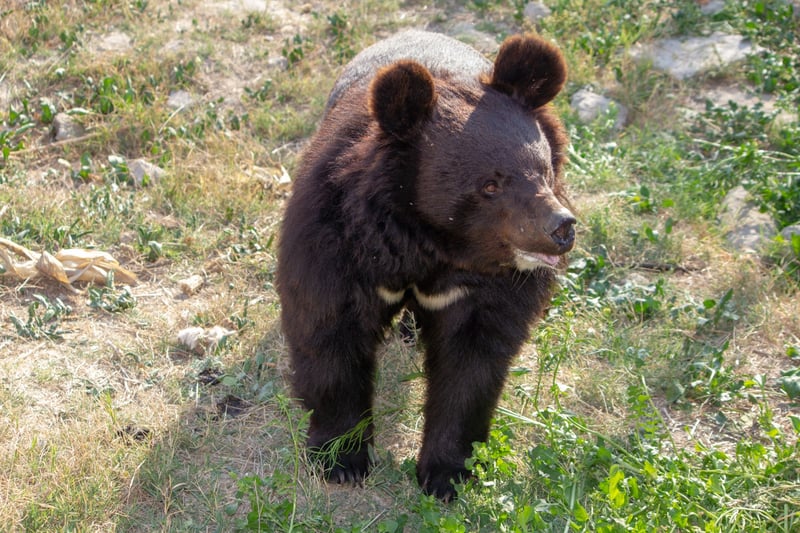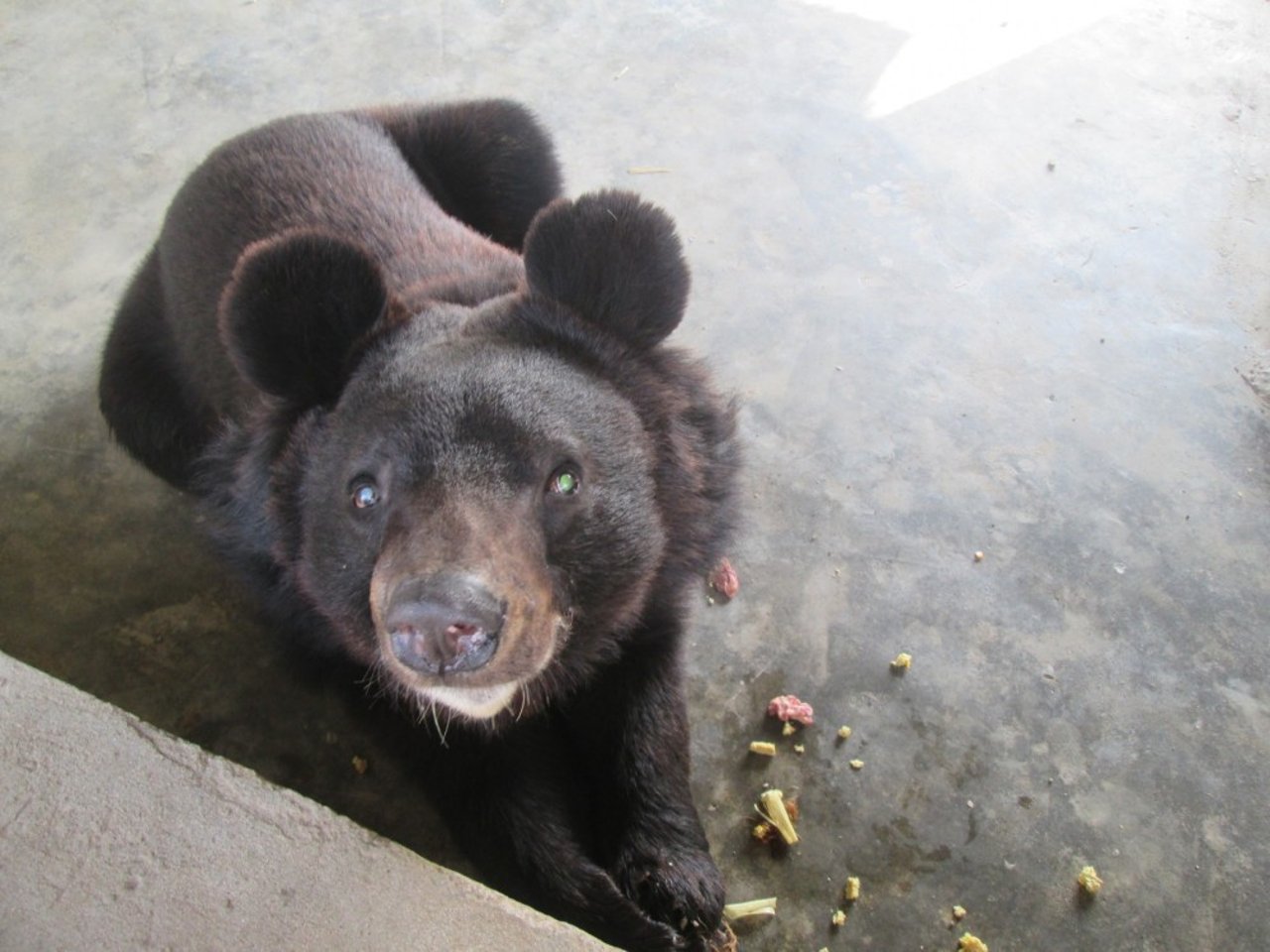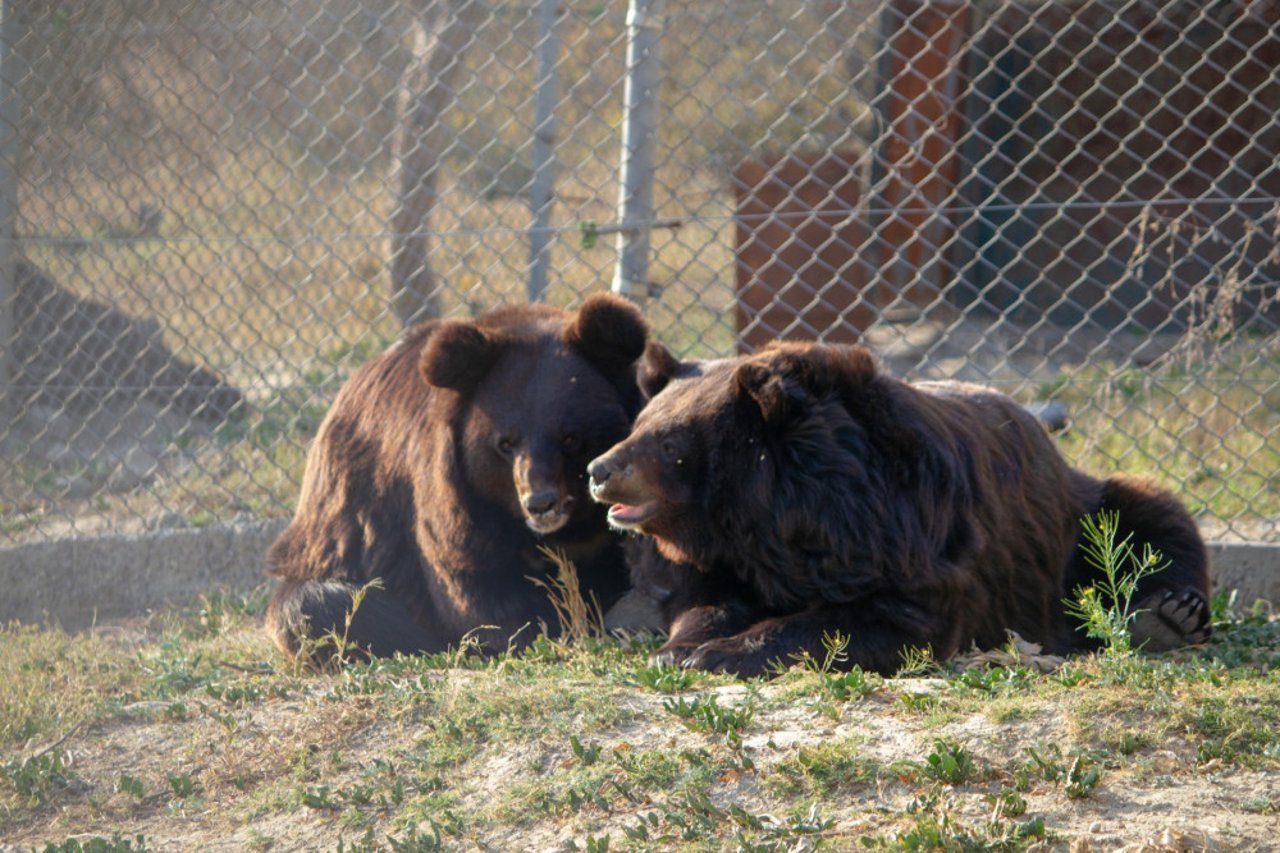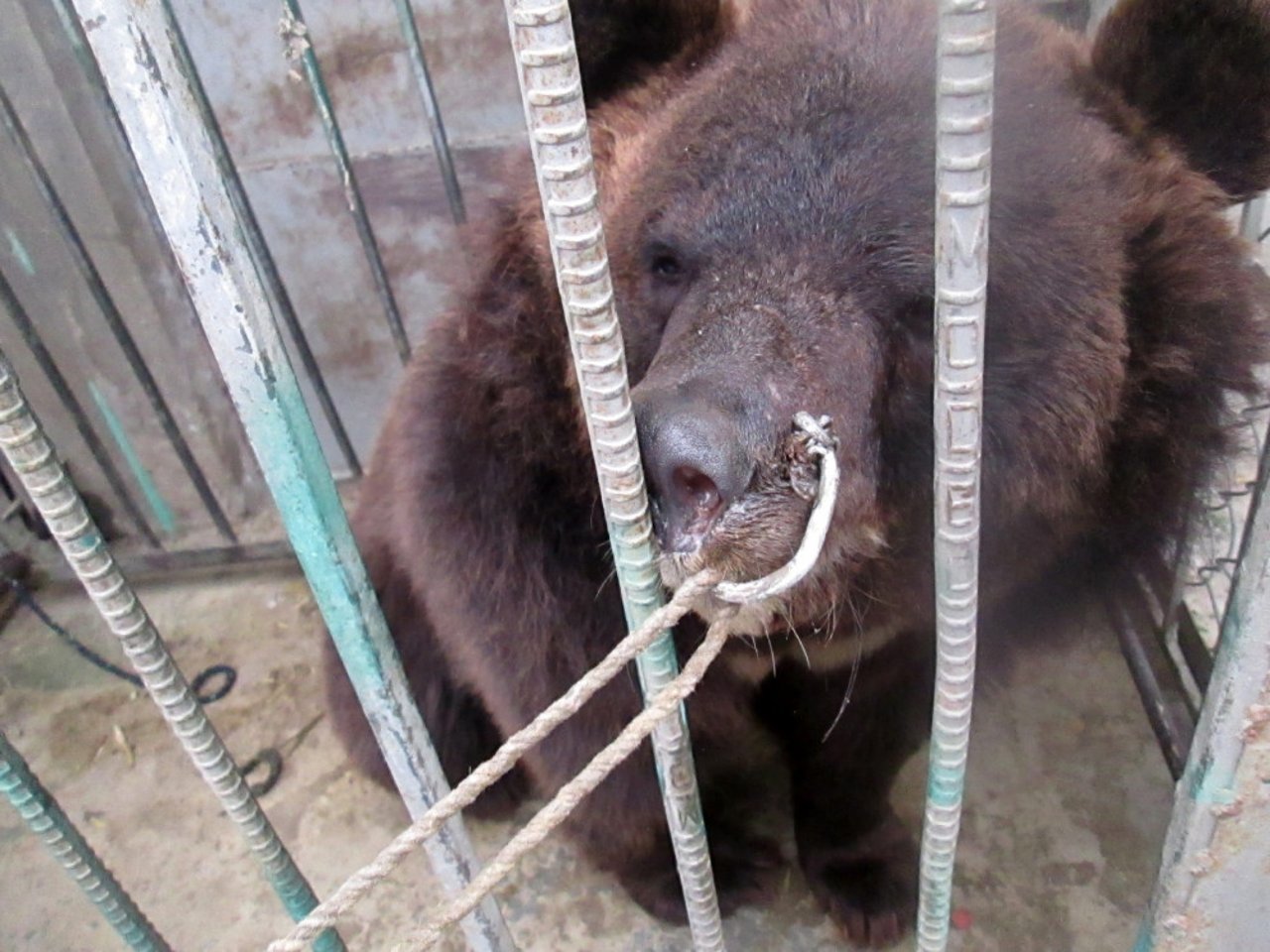
Wonderful news! Three new arrivals, Albus, Berdy and Brune are now safe and well at Balkasar bear sanctuary
News
Albus was confiscated while Berdy and Brune’s owners surrendered them voluntarily in exchange for alternative livelihoods. Their behaviours and personalities were severely affected by years of physical and emotional trauma caused by cruel bear baiting.
Meet the new arrivals
In November 2020 at 5 years of age, Albus was confiscated and released to the Balkasar bear sanctuary. Albus was very stressed upon his arrival to the sanctuary because of years of abuse and being fed poorly. Thanks to the hard work and care from the sanctuary staff manager, he is doing much better and settling in well. His aggression has improved, and he is becoming more accustomed to other bears.
In February 2021, two new bears were surrendered and brought to Balkasar bear sanctuary – given the names: Brune meaning ‘of dark hair’ and Berdy meaning ‘intelligent’. For almost three years they had been severely mistreated and ill fed. As you can imagine, due to the physical and emotional stress, the bears were both scared and aggressive. But who wouldn’t be if, like them, you endured severe pains of burning rods in a muzzle and were forced to dance over hot plates?
We hope that over time Brune and Berdy will be able to heal from the physical and emotional wounds and start to become less stressed and aggressive as time passes. The good news is that the two are already having fun playing together and enjoying their pool at the sanctuary. Albus is also enjoying his new life at the sanctuary, he is more relaxed then Berdy and Brune and loves lying in his bed of dry grass. All three bears have good relationships with the staff and are enjoying their good diets, comfortable living conditions, and stress-free lives.
What is bear baiting?
Bear baiting is an inhumane blood sport where bears, unable to defend themselves, battle against trained dogs for the entertainment of humans. It was popularized in 18th century England and now is only found in parts of rural Pakistan. From the time they are poached from the wild, to either their death or release – every waking moment for a bear who suffers in the sport of bear baiting is filled with terror and pain.
For a young cub, his/her suffering begins when they are first taken from the wild – most likely after witnessing their mother get killed by a hunter. After that emotional trauma, they will endure horrific mutilations that will leave them defenceless. First their canine teeth may be extracted, broken, or filed off with no pain killers or anaesthetics. Then their claws are ripped out at the root, and a nose ring or ropes are sewn through the young cub’s nose or muzzle causing agonizing pain. When old enough for their first event, they will be tied up and have dogs let loose – attacking and biting them in front of crowds of onlookers.
Bear baiting events are put on by wealthy landowners and attended by a very small minority of the Pakistani public. Our aim is to increase community support for an end to bear baiting by presenting this relatively small audience, remaining landlords and bear owners with compelling information about the ethical, religious, and animal welfare implications of this tradition.
Unlike wealthy landowners who often carry out events to improve their status, many bear owners are poor and only keep bears as a last resort to get income for them and their families. To stop bear baiting for good, a key area of our work that is carried out by the Bioresource Research Centre (BRC), is to provide bear owners with new alternative livelihoods that are sustainable and animal friendly.
Your support helps to put an end to bear baiting
Prior to Albus, Brune and Berdy arriving at the sanctuary, their lives were filled with nothing but terror, abuse, and hunger. They were fed rotten fruit out of dumps and fungus infested bread. When they were cubs, they endured the searing pain of burning rods in their muzzles and danced over hot plates as training - only to be forced into the cruel world of bear baiting when they grew up.
Although these bears are now safe, there are more that continue to suffer, which is why we need your support today to help end this practice. Despite being illegal and an offence against Islam, the practice has survived due to weak laws and enforcement, poor animal welfare awareness, financial benefits for organizers, and a lack of alternative opportunities for poor bear owners.
Thanks to donor support, World Animal Protection and BRC have been collecting extensive data on bear baiting activity via a growing network of monitoring teams within local communities since 2008. Bear baiting is illegal and because of this data and network, local authorities can act on tips of illegal activities and confiscate bears like Albus so that they can be taken to our partner sanctuary – the Balkasar bear sanctuary. Since 2008, 315 events have been stopped thanks to our incredible donors!
Your donation can help end this cruel practice for good so bears don’t have to suffer and can remain in the wild where they belong.
All photos credited to Bioresource Research Centre (BRC).
Update September 2022:
These bears urgently need your support
Currently, one third of Pakistan is under water putting human and animal life at risk.
Sadly, the immense flooding has caused intense damage, and between repairs and rising inflation the Balkasar bear sanctuary and the 74 bears that call it home are in desperate need for your support today.


